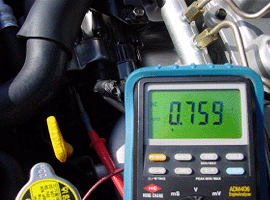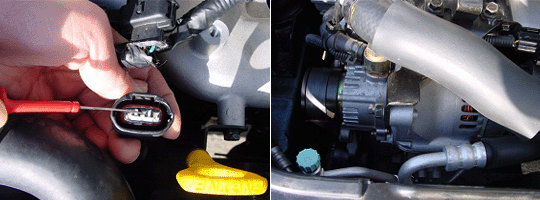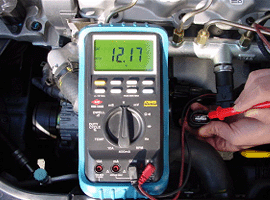Check the disconnection voltage of aternator
Specification
Battery voltage for L and S terminal
Test condition
① Disconnect L(lamp) and S(sensing) connectors.
② Turn the ignition switch ON.
③ Charging lamp indicator comes on
If there is no the battery voltage at the L and S terminal, check the following items :
- Inspect the fuse of ECM B+ (15A) of S terminal.
- Inspect short in the wire between the charging lamp indicator and the L terminal.



